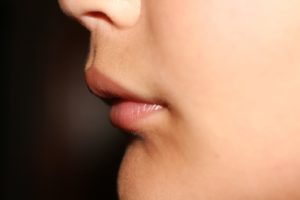
A bad bite, also called malocclusion, refers to problems with the way the teeth fit together during biting and chewing. Overbite, underbite, and crossbite are some examples of malocclusion. While such issues may not seem like a big deal at first, they can actually have serious consequences. Let’s talk about some of the problems a bad bite can cause and what you may be able to do to achieve harmonious occlusion and improved wellness.
TMD
The temporomandibular joint (TMJ) connects your mandible (lower jaw) to the rest of your skull. It is a very strong joint, but it is also delicate in the fact that there is a lot that can go wrong with it. If your teeth do not properly fit together, that places extra stress on the TMJ and may cause temporomandibular joint dysfunction (TMD). TMD is a painful condition that often causes jaw aches, headaches, neckaches, ringing in the ears, and a slew of other problems.
Damage to Teeth
When the teeth do not come together properly, they will hit each other at the wrong spots. Premature wear and tear to the enamel may result, causing dental sensitivity. Also, since malocclusion and improperly aligned teeth often go hand in hand, you may find that food tends to get caught between your teeth, increasing your risk of decay.
Gum Disease
Certain types of malocclusion are associated with an increased risk of gum disease, an infection of the gum tissue. As gum disease progresses, it can lead to persistent bad breath, loose teeth, dental pain, and tooth loss. Research even indicates that gum disease may contribute to a heightened risk of heart disease, dementia, and preterm birth.
Cosmetic Issues
Onlookers may not immediately look at you and see that you have a bad bite, but they may notice features that often accompany a bad bite. For example, you may have an undersized or incorrectly positioned jaw that causes your chin to sit back farther than it should or protrude farther than it should. A small jaw can also cause noticeable crowding of the teeth. Thin, flat lips are another common aesthetic consequence of malocclusion.
Treating Malocclusion
Clearly, the potential consequences of malocclusion mean that anyone who suffers from it should seek out professional help. An orthodontist, who understands malocclusion and how to correct it, will evaluate the way your teeth fit together and design a treatment plan to help you achieve a harmonious bite. Surgery and braces may both be necessary to achieve the desired results.
A bad bite may be just the beginning of your dental problems. If you suffer from malocclusion, seeking treatment promptly can protect both your oral and overall well-being.
Meet the Practice
Under the leadership of Dr. Amin Mason, Polaris Orthodontic Center provides comprehensive care for jaw and dental alignment problems. When surgery is a necessary part of malocclusion correction, Dr. Mason partners with local specialists to provide the best quality treatment. If you have questions about bite problems and how they may be addressed, contact us at 614-781-6990.


